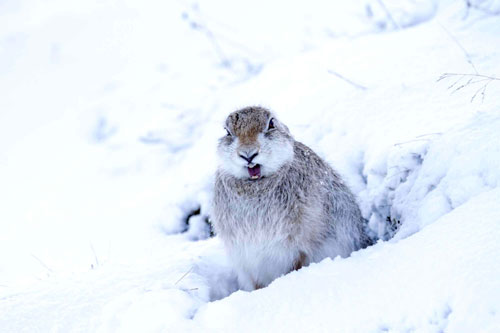SCOTLAND’S mountain hares will get greater legal protection within weeks.
From March 1 it will be illegal to intentionally kill, injure or take mountain hares at any time unless a licence is obtained.
Previously a licence would be required during the closed season, this will now be the case throughout the whole year.

The new licensing arrangement will be overseen by NatureScot, with licences issued only under certain circumstances.
These include concerns for public health or protection of crops and timber.
The changes are part of the Animals and Wildlife (Penalties, Protections and Powers) (Scotland) Act 2020.
The law changes licensing requirements for those breeding puppies, kittens or infant rabbits.
Also introduced is a ‘Lucy’s Law to end the third party selling of dogs and cats in Scotland under the age of six months.
Natural Environment Minister Ben Macpherson said: “Protecting Scotland’s wild animals in their natural environment is a key priority for this Scottish Government.
“Mountain hares are an iconic Scottish species and it is right that we protect them.”
Donald Fraser, NatureScot’s Head of Wildlife Management said: “Mountain hares – our only native hare – are an important and valued species in the Scottish hills.
“This increased protection will help ensure healthy populations of mountain hares can be found and enjoyed in the mountains.”
The Scottish Greens claimed they had forced the government’s hand.
The party’s environment spokesperson, Mark Ruskell, said: “This iconic native species has been indiscriminately killed on Scotland’s grouse moors, even though it is at risk.
“These protections come as a direct result of the tireless work of my colleague and species champion Alison Johnstone, who forced the government to act.”
Ruskell said: “Scotland is in a nature emergency, with one in nine species at threat. That’s why we will need to continue to hold the Scottish Government’s feet to the fire on this.”
Mountain hares are native to Scotland and are found in upland and mountainous regions.
They are a quarry species that have long been shot for sport and are also legitimately controlled for other reasons, including to protect plants and crops.
Those found guilty of breaking the new laws could face a maximum penalty of five years imprisonment, an unlimited fine, or both.
